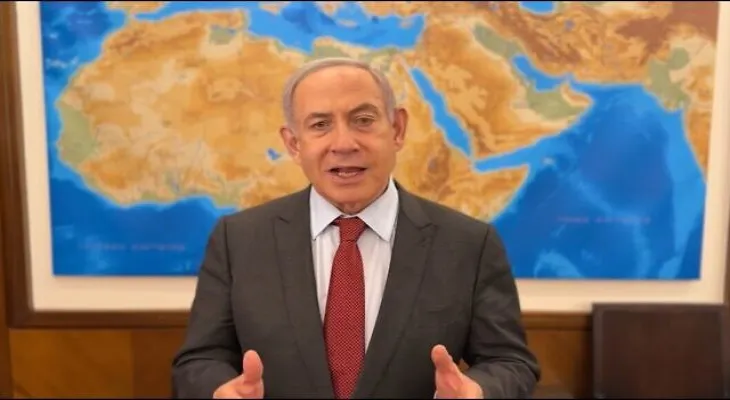Search here
Newspaper
Search here

Arab Canada News
News

Published: April 8, 2024
Israeli Prime Minister Benjamin Netanyahu said on Monday that the date for the Israeli invasion of the city of Rafah, the last refuge for displaced Palestinians in Gaza, has been set, without revealing this date.
This comes at a time when a new round of ceasefire talks is being held in Cairo, mediated by Egypt, Qatar, and the United States.
Netanyahu added, "I received a detailed report today on the talks in Cairo, and we are working tirelessly to achieve our goals, foremost among them the release of all our hostages and achieving total victory over Hamas."
He continued, "This victory requires storming Rafah and eliminating the terrorist brigades there. This will happen soon; a date has been set."
Netanyahu's statements come despite his having announced several times in recent weeks his approval of operational plans to invade the city, which have not yet been executed.
Meanwhile, U.S. State Department spokesman Matthew Miller said that Israel has not informed the Biden administration of the date it plans to launch a major attack on the city of Rafah in southern Gaza Strip.
Miller reiterated Washington’s opposition to the large-scale invasion of Rafah, affirming that Israel can achieve its military objectives through other means.
Separately, Miller said that the U.S. State Department has opened several investigations into Israeli war crimes in Gaza, but has not yet concluded that the Israeli army has violated international humanitarian law in its war against Hamas in the Gaza Strip."
He added during a press conference on Monday, "We have a number of different experts from various offices who look at the facts and apply them to international law and carry out assessments, and these assessments are ongoing."
He continued, according to the Times of Israel: "We have not yet reached the conclusion that Israel has violated international humanitarian law, but we have ongoing assessments across a number of different fronts."
The U.S. State Department spokesman also confirmed that humanitarian aid can begin flowing through the Israeli Erez crossing into northern Gaza this week.
Miller repeated Washington's satisfaction with the initial steps that Israel agreed to take, including reopening the Erez crossing, opening the Ashdod port as another entry point for relief, simplifying the aid route from Jordan, and the Israeli army’s establishment of a new unit for disengagement, dealing more directly with humanitarian agencies operating in Gaza.
Miller said that more than 300 aid trucks entered Gaza yesterday, and the United States hopes that 350 trucks will enter the Strip daily later this week.
While welcoming these initial steps, it is important to recognize that there is much that still needs to be done," pointing out that 100 percent of Gaza's population suffers from food insecurity, and we expect Israel to fully and promptly fulfill its commitments, and we will monitor this implementation."
Comments